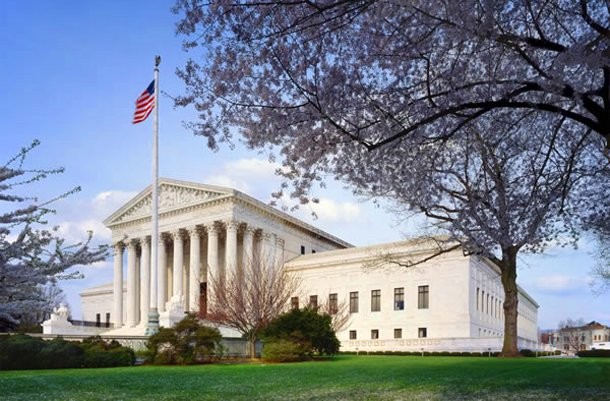Supreme Court To Address Video Game Legislation

News broke early this morning that the Supreme Court of the United States has approved a petition for a writ of certiorari in regards to the Entertainment Merchants Association v. Schwarzenegger case. A writ of certiorari is an action that allows a higher court to review a decision made by a lower one for legal error, particularly in instances where an appeal is unavailable. The Supreme Court will be reviewing a decision made by the 9th Circuit Court of California back in February of last year, which nullified a law that would make selling violent video games to minors an illegal act. The law would have fined retailers up to $1,000 per transgression.
"The EMA obviously would have preferred that the Supreme Court decline review of the lower court decision finding the California video game restriction law to be unconstitutional," said Bo Anderson, president and CEO of the Entertainment Merchants Association. "We are confident, however, that when the Supreme Court conducts its review, it will conclude that the lower court correctly analyzed the law and reached the appropriate conclusion."
The stance of the Entertainment Merchants Association and the Entertainment Software Association in regards to this type of legislation has always been the same – industry implemented checks and balances, similar to those enforced by movie theaters to keep youth out of R-rated movies, are enough. "We believe that the protections already afforded to books, films, music and other forms of popular entertainment should apply equally to computer and video games," reads a release sent out by the Video Games Voter Network, which brands any such legislation as blatantly unconstitutional.
The ESA was quick to offer up its own response to the news, straight from Michael Gallagher, the current president and CEO of the ESA. "Courts throughout the country have ruled consistently that content-based regulation of computer and video games is unconstitutional," he said in a statement. "Research shows that the public agrees, video games should be provided the same protections as books, movies and music."
"As the Court recognized last week in the U.S. v. Stevens case, the First Amendment protects all speech other than just a few historic and traditional categories that are well-defined and narrowly limited. We are hopeful that the Court will reject California’s invitation to break from these settled principles by treating depictions of violence, especially those in creative works, as unprotected by the First Amendment.
"A poll recently conducted by KRC Research found that 78 percent believe video games should be afforded First Amendment protection. We look forward to presenting our arguments in the Supreme Court of the United States and vigorously defending the works of our industry’s creators, storytellers and innovators."
All similar legislative attempts in the past have been shot down after being ruled unconstitutional. This will be the first time the highest ranking court in the United States has heard the argument, however.
The Supreme Court will review the case sometime after October 4.

Get the Game Informer Print Edition!
Explore your favorite games in premium print format, delivered to your door.
- 10 issues per year
- Only $4.80 per issue
- Full digital magazine archive access
- Since 1991









